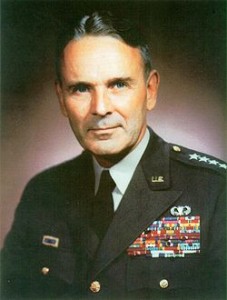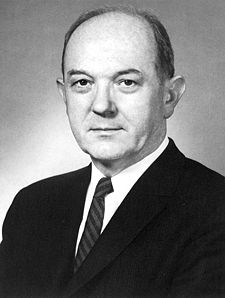I’ve said before that if you want to understand the limitations of hierarchical organization, a good place to start is with the world’s most powerful hierarchical institution: the US military. And to study the military’s flaws, the obvious place to start is with its biggest failure: the war in Vietnam. To that end (and at the suggestion of Arnold Kling), I’ve been reading The Best and the Brightest, David Halberstam’s ironically-named critique of the mistakes that led to the Vietnam War.
The debates over the Iraq and Afghanistan wars have made discussion of the Vietnam War so common that it has become a cliche. I think Matt is right that reading books about Vietnam isn’t going to tell us what to do in Afghanistan. In any event, I’m not an expert on foreign policy and so that won’t be my focus. Rather, I’m interested in understanding the characteristic pathologies of large, hierarchical institutions, and how those pathologies contributed to mistakes in Vietnam. In particular, I’m interested in understanding how the military’s hierarchical structure constrained the choices of Pres. Kennedy, Pres. Johnson, and senior decision-makers in the Vietnam War.One of Halberstam’s recurring themes is that the presidents and cabinet officials who were nominally in charge of the war had much less control than they thought they did. The story begins in the early days of the Kennedy administration, when General Maxwell Taylor recommended dispatching combat troops to Vietnam to prop up the government of Ngo Dinh Diem. The recommendation was hotly debated inside the Kennedy administration, and was ultimately rejected in favor of a more incremental approach. Halberstam explains (pp. 175-179):
On November 11 [1961], there was a new [Defense Secretary Robert] McNamara paper, done jointly with [Secretary of State Dean] Rusk, which reflected the President’s position. It was a compromise with the bureaucracy, particularly the military, and a compromise with the unstated, unwritten pressures against losing a country. Kennedy would send American support units and American advisors, but not American combat troops. We would help the South Vietnamese help themselves. If there really was something to South Vietnam as a nation and it really wanted to remain free, as we in the West defined freedom, then we would support it. We would send our best young officers to advise down to the battalion level, we would ferry the ARVN into battle against the elusive Vietcong, and we would, being good egalitarians, pressure Diem to reform and broaden the base of a creaky government and modernize his whole society…
For many reasons, the Taylor-Rostow report was far more decisive than anyone realized, not because Kennedy did what they recommended, but because in doing less than it called for, he felt he was being moderate, cautious. There was an illusion that he had held the line, whereas in reality he was steering us deeper into the quagmire. He had not withdrawn when a contingent of 600 men ther had failed, and now he was escalating that commitment to 15,000, which meant that any future decision on withdrawal would be that much more difficult. And he was escalating not just the troop figure but changing a far more subtle thing as well. Whereas there had been a relatively low level of verbal commitment—speeches, press conferences, slogans, fine words—his Administration would now have to escalate the rhetoric considerably to justify the increased aid, and by the same token, he was guaranteeing that an even greater anti-Communist public relations campaign would be needed in Vietnam to justify the greater commitment. He was expanding the cycle of American interest and involvement in ways he did not know…While the president had the illusion that he had held off the military, the reality was that he had let them in. They now began to dominate the official reporting, so that the dispatches which came into Washington were colored through their eyes. Now they were players, men who had a seat at the poker table; they would now, on any potential dovish move, have to be dealt with. He had activated them, and yet at the same time had given them so precious little that they could always tell their friends that they hadn’t ever been allowed to do what they really wanted. Dealing with the mliitary, once their foot was in the door, both Kennedy and Johnson would learn, was an awesome thing. The failure of their estimates along the way, point by point, meant nothing. It did not follow, as one might expect, that their credibility was diminished and that there was now less pressure from them, but the reverse. It meant that there would be an inexorable pressure for more—more men, more hardware, more targets—and that with the military, short of nuclear weapons, the due bills went only one way, civilian to military. Thus one of the lessons for civilians who thought they could run small wars with great control was that to harness the military, you had to harness them completely; that once in, even partially, everything began to work in their favor.
In the next few posts, I’ll examine why a president who is nominally the boss of the military brass found it so difficult to bend them to his will. And I’ll explore what lessons the story has for hierarchical institutions more generally.




